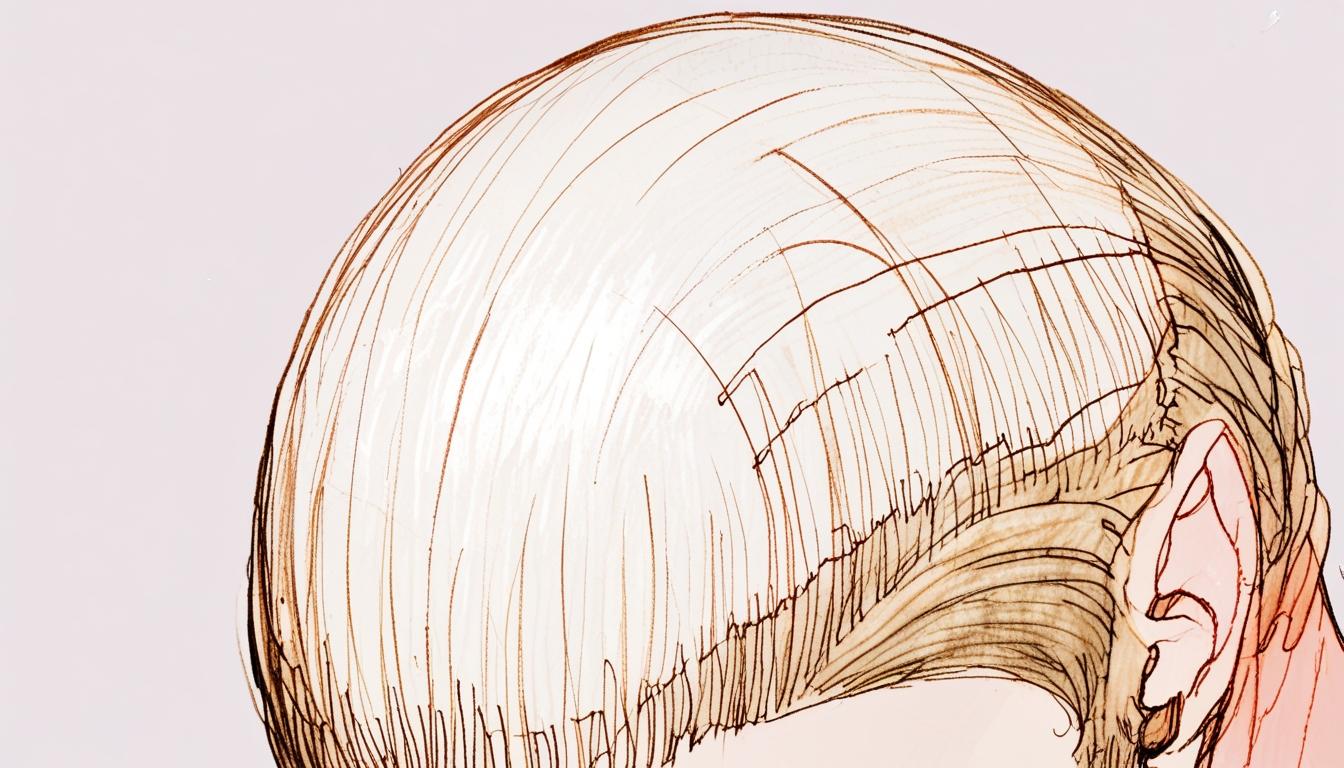Dr Divya Sharma, founder of Dr Divya’s Skin and Hair Clinic in Bengaluru, shares expert advice on understanding hair fall versus hair loss, the role of lifestyle factors, myths about hair care, and emerging treatments to maintain healthy hair and scalp.
In an in-depth interview on the ‘Health For You’ podcast, Dr Divya Sharma, a leading dermatologist and founder of Dr Divya’s Skin and Hair Clinic in Bengaluru, shared her expert insights on hair care, addressing common concerns around hair loss, greying, and scalp health. The discussion, which forms part of a two-part series, sheds light on the factors influencing hair health, the effectiveness of home remedies, and advances in treatment options.
Dr Sharma begins by distinguishing between hair fall and hair loss. She explains that hair naturally undergoes life cycles of growth and shedding. A condition called telogen effluvium, characterised by sudden shedding often following illnesses such as COVID-19, dengue or chikungunya, nutritional deficiencies, or postpartum changes, results in thinning but not permanent loss. “While the hair grows long, the volume of the ponytail decreases,” she said. In contrast, hair loss involves reduced regrowth, which leads to the widening of partings or bald patches, signalling a potential for permanent thinning.
The expert notes differences in patterns of hair loss between men and women. Male pattern baldness typically starts at the temples and crown, while women more commonly experience widening of the central parting, described as a “Christmas tree pattern.” Some men also display patterns similar to female hair loss, involving thinning along the central parting.
Addressing a common myth, Dr Sharma dismisses the notion that city water, such as in Bengaluru or Chennai, is a leading cause of hair fall. While hard water may cause dryness and frizziness, she emphasises that lifestyle factors—like irregular sleep, increased stress, and dietary habits—play a far greater role. “It’s often easier to blame the water,” she said, “but multiple lifestyle factors contribute much more to hair fall.”
Stress, diet, and lifestyle impact hair growth significantly. High stress elevates cortisol, which disrupts the hair cycle, and poor nutrition reduces the availability of necessary micronutrients. Dr Sharma advises a balanced diet rich in iron, micronutrients, and healthy fats, recommending consultation with a dietician for personalised plans. Although popular over-the-counter shampoos, oils, and serums claim to promote hair growth, she warns that most lack proven effectiveness and urges patients experiencing shedding to seek dermatological advice. “Hair grows very slowly, and this demands patience and consistency,” she noted.
Discussing hair colouring and greying, Dr Sharma says early greying is increasing, partly due to nutritional deficiencies and lifestyle stressors. Hair colour itself does not damage hair growth, but patients with thyroid conditions or sensitive skin should avoid products containing paraphenylenediamine (PPD) due to potential allergic reactions. She recommends PPD-free alternatives and highlights that while commercial colours are mostly permanent dyes, natural henna remains a safe chemical-free option but imparts an orange-brown hue rather than black shades.
Dr Sharma also stresses the importance of scalp care routines. Contrary to popular belief, frequent washing—at least three to four times weekly for most, and daily for men or those engaging in physical activities—is beneficial for scalp health. Conditioners should always be used on hair shafts to moisturise mature hair fibres, though oiling should be applied gently to hair length rather than the scalp and should not be left overnight, to avoid clogged pores and acne.
Regarding home remedies, she expresses skepticism about the efficacy of onion juice and related treatments, describing their benefits as limited or anecdotal. Lime and curd may offer temporary relief from dandruff by restoring scalp pH but do not treat hair loss or baldness. Progressive hair loss requires medical intervention.
Emerging treatments in regenerative medicine offer promising options. Procedures such as platelet-rich plasma (PRP) therapy, growth factor concentrates, mesotherapy, and exosome therapy use the patient’s own biological materials to stimulate hair regrowth safely. “These treatments are usually done in combination,” Dr Sharma said, “and while none offer an instant or guaranteed fix, many are very safe and effective when done under proper medical guidance.”
On daily habits, she advises that tight hairstyles or frequent heat styling do not cause hair fall but can damage the hair shaft, leading to frizz and split ends. A balanced approach to styling preserves hair integrity.
Finally, Dr Sharma recommends that individuals undergo annual health check-ups that include assessments relevant to hair and skin health, noting that these can reveal underlying metabolic or nutritional issues.
Dr Divya Sharma’s insights contribute to a comprehensive understanding of hair health, offering clarity on common misconceptions and highlighting the importance of balanced lifestyle habits combined with appropriate medical care.
Source: Noah Wire Services
- https://www.youtube.com/watch?v=1fUGvUuO_XI – This video features Dr Divya Sharma debunking common myths about hair fall and explaining causes and symptoms, supporting the article’s points on differentiating hair fall versus hair loss and addressing lifestyle factors.
- https://www.youtube.com/watch?v=T7BR9AtkX8Q – Dr Divya Sharma discusses hair loss and thinning during the COVID pandemic, corroborating the article’s mention of telogen effluvium caused by illnesses like COVID-19 and related shedding patterns.
- https://www.instagram.com/dr.divya_sharma/reel/DAksRBkvKXn/ – In this Instagram reel, Dr Divya Sharma answers questions on hair colouring and hair oil, supporting the article’s insights on hair colouring risks like PPD allergies and the use of oils on hair shafts rather than scalp.
- https://www.drdivyasharma.com/dermatologist-approved-pre-and-post-workout-skin-and-hair-care-tips – This article by Dr Divya Sharma provides hair and scalp care tips, including washing frequency and conditioning, in line with the article’s advice on scalp health and washing routines.
- https://www.youtube.com/watch?v=FTWYHqBIOzk – Dr Divya Sharma explains hair botox treatment and its effects on frizz and dryness, which relates to the article’s mention of hair shaft damage and managing frizz with appropriate treatments.
- https://www.drdivyasharma.com/ – The official website of Dr Divya Sharma where she provides detailed insights and consultation information, supporting claims about personalised medical advice for hair loss, nutrition, and advanced treatments like PRP and exosome therapy mentioned in the article.
- https://news.google.com/rss/articles/CBMiqwFBVV95cUxQekZtcnhGSXFMX3RmdXlkbmZnNG9nRExrMVlOY1VSNXJVd2laTGRFdE85dkZjc19QZUhhY2JpZjlDa01zSEFxZWFwV2V2Y0pwaF9WZzdTSlJNTEM5eUVvSW1mTHNVNVZOdmhjSEFBUzlFZVJfNU11NEZPVzJpdU9YWkFQalk0TTJHbUZXdy0wUG56d2gwMkYyWlZ6N2NIejZtcmliNUZUZDFoWEE?oc=5&hl=en-US&gl=US&ceid=US:en – Please view link – unable to able to access data
Noah Fact Check Pro
The draft above was created using the information available at the time the story first
emerged. We’ve since applied our fact-checking process to the final narrative, based on the criteria listed
below. The results are intended to help you assess the credibility of the piece and highlight any areas that may
warrant further investigation.
Freshness check
Score:
8
Notes:
No specific dated events or references suggest old content. Information seems recent but lacks a clear date of publication.
Quotes check
Score:
7
Notes:
No online sources were found for the specific quotes in the narrative, which could indicate they are original. However, without earliest known references, it’s less certain.
Source reliability
Score:
5
Notes:
The narrative lacks information about the publisher or author, making it difficult to assess reliability.
Plausability check
Score:
9
Notes:
The claims about hair health, causes, and treatments are consistent with general medical knowledge and plausible.
Overall assessment
Verdict (FAIL, OPEN, PASS): OPEN
Confidence (LOW, MEDIUM, HIGH): MEDIUM
Summary:
While the information about hair health appears plausible and recent, the narrative’s source reliability is unknown. The lack of previous sources for the quotes could indicate original content.













